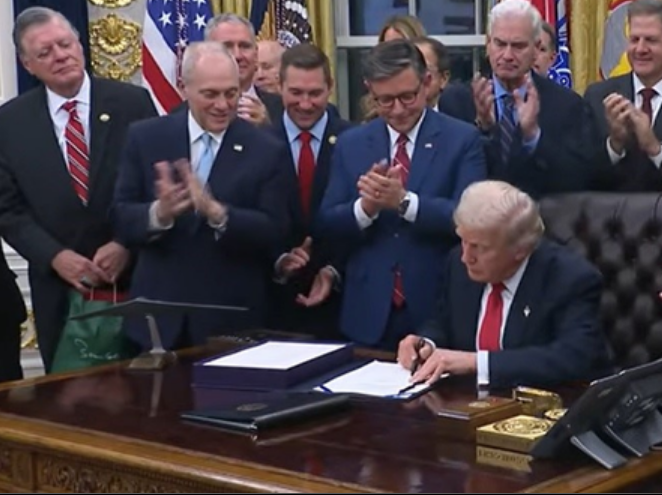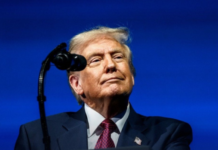NEW YORK — The 42-day federal government shutdown, the longest in U.S. history, came to an end Wednesday after President Donald Trump signed legislation temporarily funding government operations.
The breakthrough followed a House vote approving the same stopgap funding bill passed earlier by the Senate, ending weeks of gridlock between Republicans and Democrats. The shutdown had stalled a wide range of federal services, from air travel operations to food assistance programs.
Trump, celebrating the bill’s passage, called it “a great day” and framed the outcome as a Republican win, noting that the measure cleared Congress without accommodating Democratic demands to extend Affordable Care Act (Obamacare) subsidies enacted during the Obama administration.
The impasse had persisted because Senate Republicans lacked the 60 votes required under chamber rules to advance the legislation. Momentum shifted on Monday, when eight Democrats crossed party lines to help move the bill to a final vote.
With the shutdown now over, federal agencies will begin the process of restarting full operations, though officials warn it may take time before all services are fully restored. All federal employees will receive back pay, including those who were furloughed and those who had been working without pay, such as air traffic controllers, TSA officers, and other essential staff.
Looking ahead to next year’s midterm elections, Trump urged Americans to “not forget this” when voting. Democrats, meanwhile, pointed to unresolved battles over health care subsidies. House Minority Leader Hakeem Jeffries warned that if Republicans refuse to extend Obamacare tax credits this year, voters will “throw Republicans out of their jobs next year.”
Under the temporary funding measure, most government operations will be financed through the end of the year, giving lawmakers time to negotiate a full budget. Some programs, including services for retired military personnel and food assistance for roughly 42 million low-income Americans, will be funded through September.
The House passed the bill largely along party lines, 222–209, with six Democrats voting in favor and two Republicans opposed. The shutdown’s political fallout has affected both parties. Trump acknowledged recent GOP losses in elections this month, while Democrats also faced pressure as many of their supporters—federal workers and low-income families—bore the brunt of the stoppage.
The strain helped push several Senate Democrats to support ending the shutdown. Representative Marie Gluesenkamp Perez, one of the Democrats who broke ranks in the House, said her constituents on food assistance “would not want to trade their dinner for an ambiguous D.C. beltway messaging victory.”
The defections have sparked internal criticism within the Democratic Party, with some members faulting Senate Majority Leader Chuck Schumer for failing to prevent the split.
Trump has reiterated his intention to overhaul the Affordable Care Act, proposing to redirect subsidies directly to individuals rather than insurance companies, arguing that the current system inflates insurer profits.
The bill also includes a lesser-known provision restricting federal prosecutors from secretly obtaining senators’ phone records and authorizing compensation of up to $500,000 for violations. The measure is retroactive to 2022 and follows controversy over prosecutors seizing lawmakers’ phone data during investigations into the January 2021 Capitol breach. (Source: IANS)













